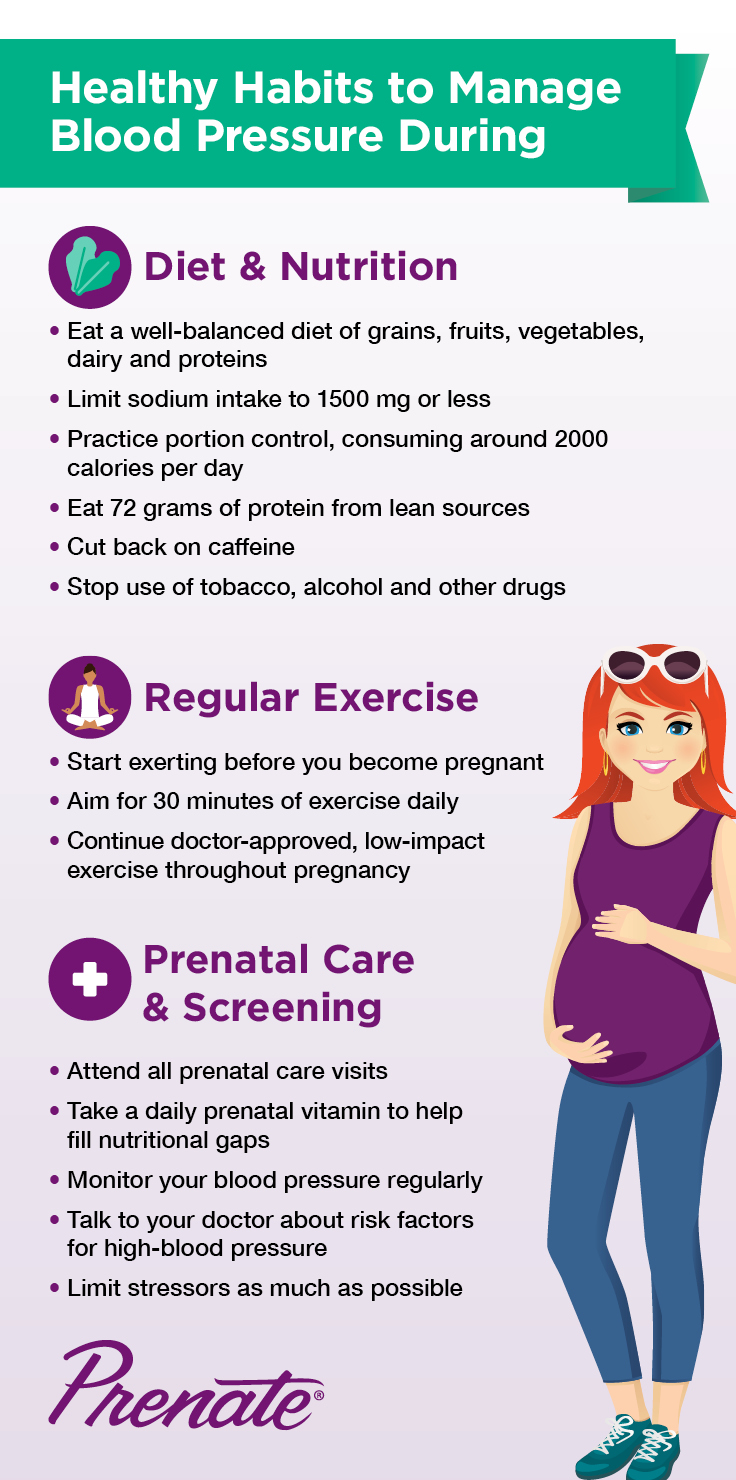Effects of Pregnancy on Blood Pressure
February 21, 2017
Because blood volume increases during pregnancy, women need to pay special attention to diet and exercise habits that affect their hearts and blood. In addition to practicing healthy habits, a daily prenatal vitamin with iron can support both mothers and babies during pregnancy.
Effects of Rising Blood Pressure
Throughout pregnancy the amount of blood pumping through a woman’s body increases by between 30 – 50 percent.1 This increase in supply supports the growth of her baby as well as the weight again and stress that she experiences during pregnancy. All of this increased blood volume naturally increases the expecting mother’s blood pressure.
Physical symptoms of elevated blood pressure vary from person to person. Some women don’t have any symptoms, while others may experience swelling of their hands and feet.
If a woman enters pregnancy with hypertension or high-blood pressure, a condition called hypertension, these symptoms can become more severe. In some cases, hypertension can even develop into one of several dangerous conditions that can threaten the health and safety of a mother and her baby. Both chronic and gestational hypertension may lead to preeclampsia, a pregnancy complication characterized by high blood pressure and signs of damage to another organ system, usually the liver or kidneys. Preeclampsia usually begins after 20 weeks of pregnancy.2
Healthy Habits to Manage Blood Pressure
To reduce the chances of physical symptoms and more serious conditions, it is important to enter pregnancy with healthy habits and to continue to practice them. A normal blood pressure during pregnancy is 119/79, or lower.3 High blood pressure becomes a concern when the top number is 140 or greater, or when the bottom number is 90 or greater.3
These tips can help combat complications with rising blood pressure:
Diet and Nutrition4
- Eat a well-balanced diet of grains, fruits, vegetables, dairy and proteins
- Limit sodium intake to 1,500 mg or less
- Practice portion control, consuming around 2,000 calories each day
- Eat 72 grams of protein from lean sources
- Cut back on caffeine
- Stop the use of tobacco, alcohol and other drugs
Regular Exercise4
- Start exercising before you become pregnant
- Aim for 30 minutes of exercise daily
- Continue doctor-approved, low-impact exercise throughout pregnancy
Prenatal Care and Screening
- Attend all prenatal care visits
- Take a daily prenatal vitamin to help fill nutritional gaps
- Monitor your blood pressure regularly
- Talk to your doctor about risk factors for high-blood pressure
- Limit stressors as much as possible
Prenatal Vitamins with Iron
Iron is essential in transferring oxygen throughout the body.5 This process takes place through the blood that pumps between a mother and her baby. Just like the blood volume that increases during pregnancy, a mother’s need for iron increases too. During pregnancy and breastfeeding, a mother should increase her iron intake from 15 mg per day to 18 mg.6
The Prenate® Vitamin Family offers several prenatal vitamins with iron. Each of the following Prenate® products is taken once daily:
- Prenate Pixie® and Prenate Mini® – Both of these small prenatal vitamins contain Sumalate®, the GI gentle and highly absorbable form of chelated iron that allows for lower doses.7-10
- Prenate® Enhance and Prenate® Restore – Both robust prenatal vitamins contain ferrous fumarate, a well-tolerated and bioavailable ferrous salt.11
Designed for the needs of both mothers and babies, the Prenate® Vitamin Family helps fill nutritional gaps. Talk to your doctor to see which prenatal vitamin with iron is right for you.
You Are About To Leave This Website
By clicking continue, this link will take you to a website to which Alora Pharmaceuticals Policies & Terms of Use do not apply. Alora and its subsidiaries do not control the content or accuracy of third-party websites and assume no responsibility for their use.











